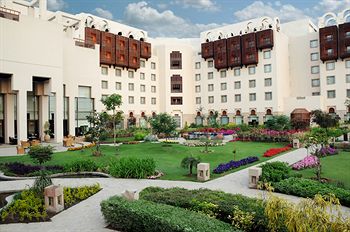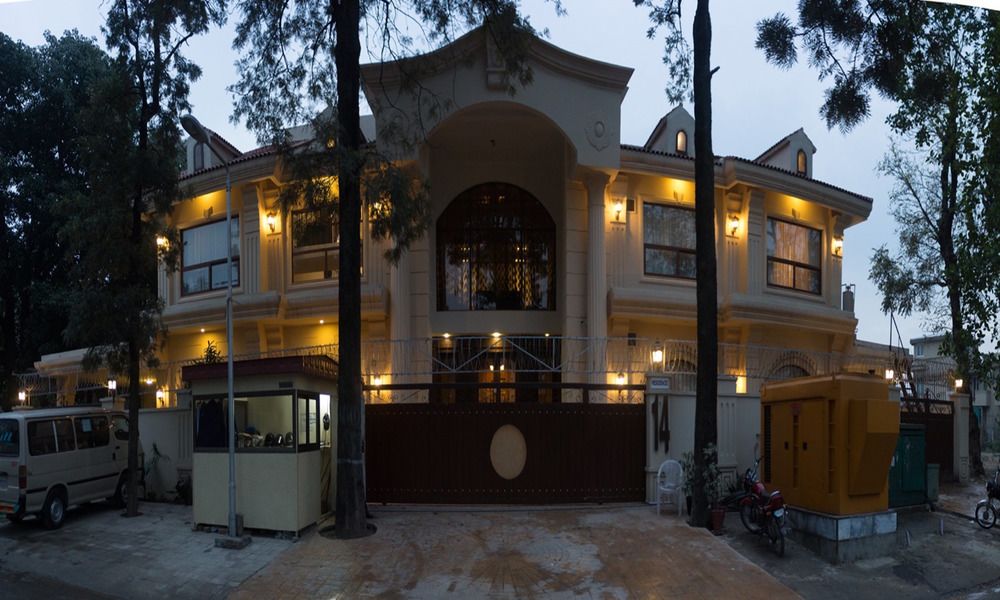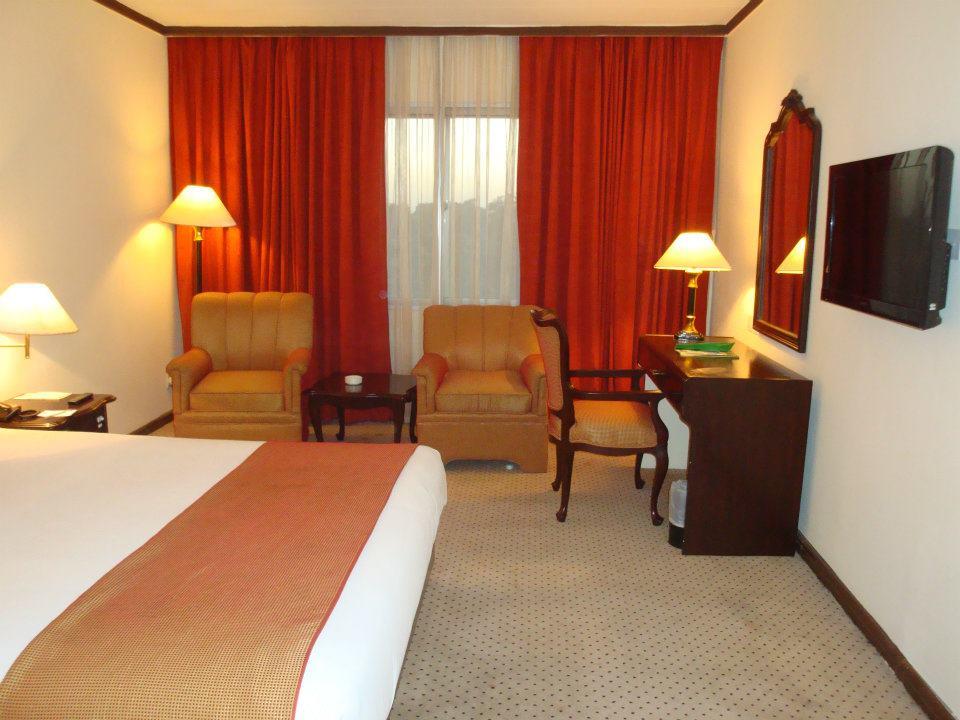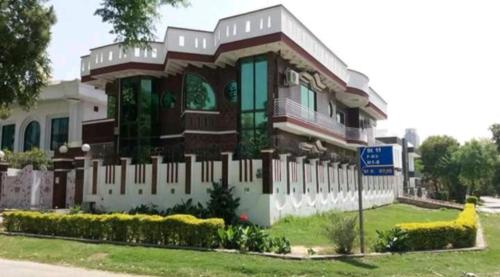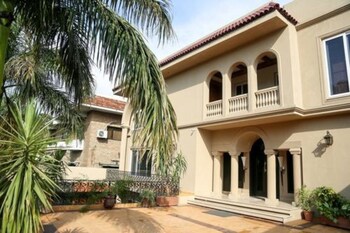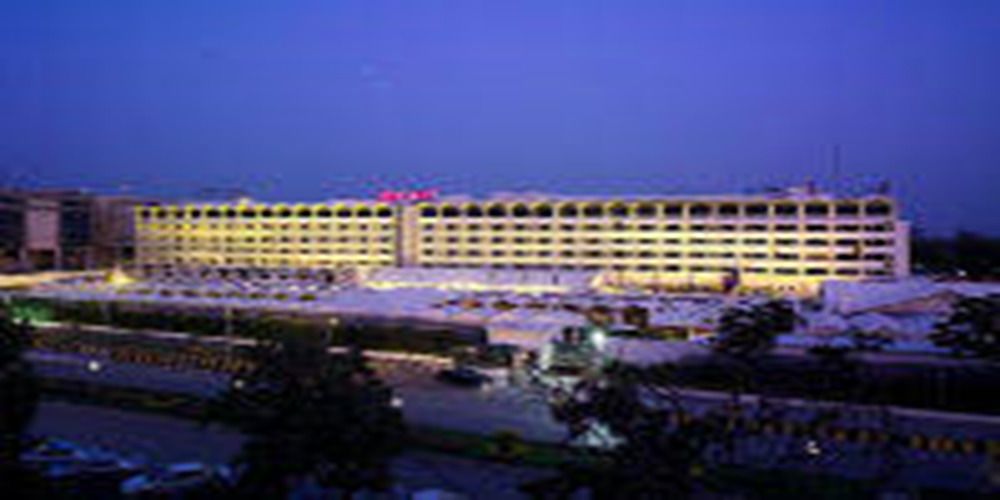
イスラマバードホテル検索結果
AIが見つけた軒のホテルの最安値をご覧ください。
ベストホテル
最安値のホテル
ホテル等級
AIおすすめ
イスラマバードベストホテル
イスラマバード 最低価格のホテル
最高評価のホテル
イスラマバードにある5つ星ホテル
イスラマバードにある4つ星ホテル
イスラマバードにある3つ星ホテル
AIがおすすめする世界の旅行先
イスラマバード近くのホテル情報
イスラマバード 旅行に欠かせない情報
Islamabad (; Urdu: اسلام آباد Islāmābād [ɪsˌlɑːmɑːˈbɑːd]) is the capital city of Pakistan, and is federally administered as part of the Islamabad Capital Territory. Built as a planned city in the 1960s to replace Karachi as Pakistan's capital, Islamabad is noted for its high standards of living, safety, and abundant greenery.With a population of 1,014,825 as per the 2017 Census, Islamabad is the 9th largest city in Pakistan, while the larger Islamabad-Rawalpindi metropolitan area is the country's third largest with a population exceeding four million. The city is the political seat of Pakistan and is administered by the Islamabad Metropolitan Corporation, supported by the Capital Development Authority (CDA).
Islamabad is located in the Pothohar Plateau in the northeastern part of the country, between Rawalpindi District and the Margalla Hills National Park to the north. The region has historically been a part of the crossroads of Punjab and Khyber Pakhtunkhwa with the Margalla Pass acting as the gateway between the two regions.The city's master-plan, designed by Greek architect Constantinos Apostolou Doxiadis, divides the city into eight zones, including administrative, diplomatic enclave, residential areas, educational sectors, industrial sectors, commercial areas, and rural and green areas. The city is known for the presence of several parks and forests, including the Margalla Hills National Park and Shakarparian Park. The city is home to several landmarks, including the Faisal Mosque, the largest mosque in South Asia and the fourth largest in the world. Other landmarks include the Pakistan's National Monument and Democracy Square.Islamabad is a beta-world city; it is categorised as very high on the Human Development Index, with an HDI of 0.875, the 2nd highest in the country after Lahore. The city has the highest cost of living in Pakistan, and its population is dominated by middle and upper middle class citizens. The city is home to twenty universities, inclu
 時間 UTC+05
時間 UTC+05 通貨 PKR
通貨 PKR 言語 Urdu, English, Punjabi, Sindhi, Siraiki, Pashtu, Balochi, Hindko, Brahui, Burushaski
言語 Urdu, English, Punjabi, Sindhi, Siraiki, Pashtu, Balochi, Hindko, Brahui, BurushaskiStaypiaだけの特別な特典
リアルタイムホテル最安値比較
AIが見つけたin イスラマバードの軒のホテルのリアルタイム最安値を簡単に比較検索できます。
316万軒のホテルを最安値で予約
最低価格に最大31%追加メンバーシップ割引でさらにお得にご予約いただけます。
自分だけの
AIがリアルタイムで更新するイスラマバード旅行情報で便利に旅行を準備しましょう。
よくある質問
イスラマバードで最も人気のある5つ星ホテルはIslamabad Serena Hotel, Chalet Islamabad, Millennium Hotel Islamabadです。 イスラマバード 評価順にホテルを見る
一般的なホテルの場合、客室予約はキャンセル締切日前まで無料返金が可能です。キャンセル締切日以降は手数料が発生する場合がありますので、ホテルバウチャーまたはメニュー>マイ予約でキャンセル締切日をご確認ください。
ステピアでは、AIが収集した316万件のホテルの最安値はもちろん、会員限定の追加割引価格で人気ホテルを予約することができます。
